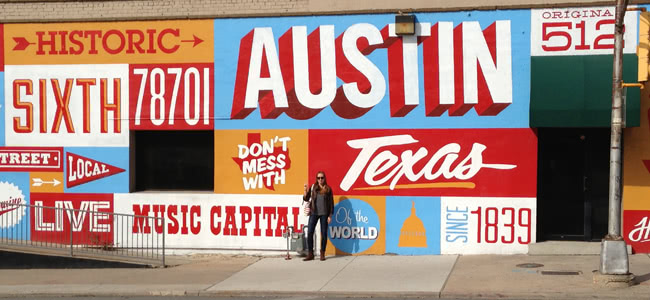Last month, Tone Deaf reported on the findings of a new global study titled The Mastering Of A Music City, published by the IFPI and Music Canada, which cited Melbourne as one of the world’s leading music cities alongside London, Montreal, New York, Berlin, and Austin.
Austin has long commanded a reputation as the live music capital of the world, but it seems that even the live music capital experiences the same inevitable issues as the other world music centres, including Melbourne, whose live scene has often been plagued with bureaucratic troubles.
According to a new report by Pitchfork, Austin’s status as the live music capital of the world is under threat from a combination of gentrification, big business, and city policies, which could see many of the area’s venue owners close up shop.
Austin’s reputation is in large part owed to its Red River district, a handful of blocks downtown featuring clubs like Stubb’s, Mohawk, Beerland, and more. But Red River, which was proclaimed a cultural district by the city two years ago, has been pitted against the machinations of developers.
The construction of a new Hyatt hotel downtown, as well as a parking garage, is threatening two of the district’s most iconic venues, Mohawk and Cheer Up Charlies. The garage will reportedly be located directly next to the two outlets.
Cheer Up owners claim they weren’t made aware of the beginning of the Hyatt development until the week before it started and that the construction threatens to irrevocably change the landscape of the area, though stakeholders are hopeful a compromise can be reached.
However, things look far bleaker a few blocks down. Holy Mountain, a much-loved nearby venue, recently announced they would be closing once their current lease expires in October as a result of rent increases of nearly 50 percent.
Meanwhile, Red 7, located next door, are currently in the midst of fighting the doubling of their rent as well. A decision is expected to be reached soon and if things don’t turn out in Red 7’s favour, the closure of these two clubs would be a huge blow for both local and visiting bands, fans, and festivals.
Making the situation even worse is the red tape venue owners in Austin are forced to deal with. Amid developments, rising rents, and an influx of residential properties near these venues are pushing them out, close to 20 permits from multiple city departments are required to open a venue.
Naturally, noise complaints have also become an issue. Carson Creek Ranch, a large piece of land outside the city and home to festival like Euphoria Fest and Austin Psych Fest, could have the hours that music can be played limited as a result of noise complaints from neighbours.
Meanwhile, Austin Music Hall a larger venue on the other side of downtown from the Red River district, which has hosted acts like Lorde and Chance The Rapper in recent years, will be demolished to make way for a 28-storey office building just a year after being bought by new management.
Fun Fun Fun Fest, which is looking to celebrate its 10th anniversary this November, is currently warring with the Parks & Recreation Department over the amount of land that the festival can use at Auditorium Shores, the festival’s home since 2011.
[include_post id=”450876″]
“We had this magical system of venues and a service industry working class that could support that,” Kana Harris, a local musician who helped lead protests in support of Cheer Up Charlies, told Pitchfork. “Once those places are gone, that thing you were selling evaporates, so the investors leave, and that’s how you get Detroits.”
Jennifer Houlihan, the Executive Music Director of Austin Music People, says the current crisis in Austin is a fork in the road for a town beloved as the “Live Music Capitol of the World”. If music leaves Austin, the effect will be devastating.
“That’s huge for the city. Music generates so much money for the general fund which pays for road repairs and things like this. If the music goes somewhere else, even people who never went to hear a band would still feel the impact,” she said.
Indeed, a 2012 study measured Austin’s creative sector as having an economic impact of $4.35 billion for the city, and in 2014, SXSW alone was responsible for bringing in $315 million to the city. Despite the booming music economy in the city, over 20 percent of musicians live below the Federal poverty line and another 30 percent hover just above it.
While naturally every city has its issues between creatives and the world of business, with areas traditionally known for music losing ground to developments and gentrification, watching such a thing happen in the “Live Music Capitol of the World” doesn’t bode well for the rest of us.




































